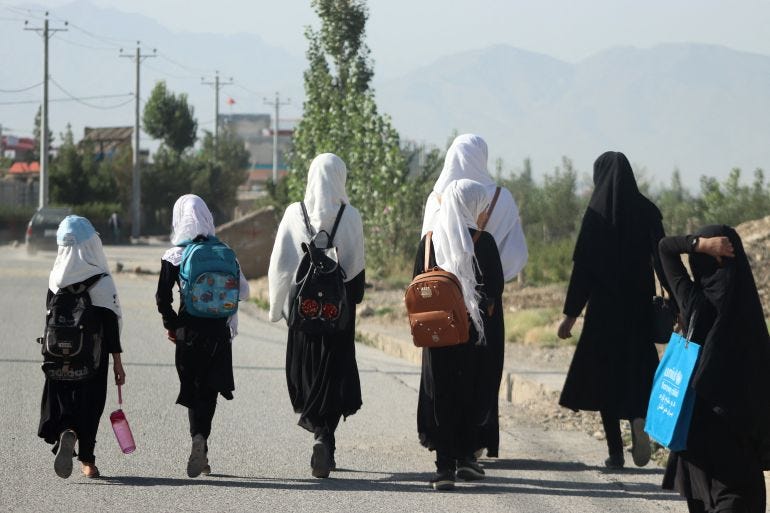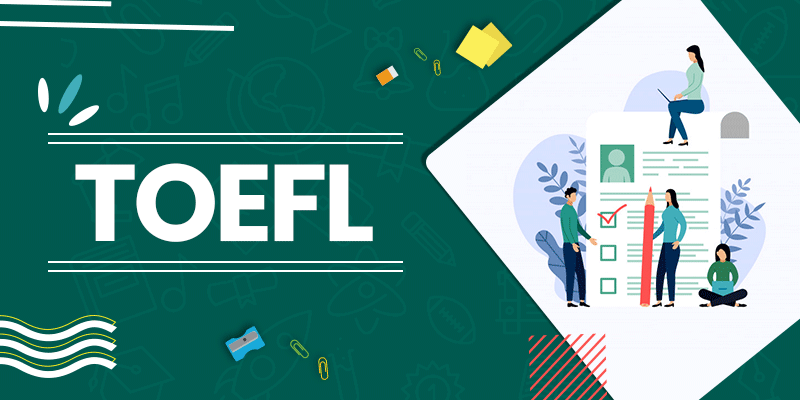English Classes Offer a Way Out for Afghan Women and Girls
Awa Arwin and Sara Qamari are studying for their TOEFL English language exam in the hopes of securing a scholarship to study abroad and escape the new Afghanistan
In the early days of Taliban rule, there was little hope. Optimists said the new regime would be more liberal, allowing women and girls to retain some of the rights regained in the last 20 years. But as the Taliban cemented their control over the country, curbing female freedoms one by one, that hope faded. Instead, Afghan women watched their rights extinguished, losing the freedom to study, work, travel and participate in public life.
“They were dark, terrified days,” says Awa Arwin who had recently completed her bachelor’s in computer science and was planning the next steps in her career when the Taliban swept to power on August 15, 2021. “I want to contribute to technological reforms and ensure that all women can work professionally in the technological field. But when the Taliban took over all my goals became an impossible dream.”

For a while, despair got the better of her, and she gave up hope, frightened and depressed by the closed, controlled life that suddenly lay before her. “I lost my motivation and energy. They deleted half the population,” she says. But slowly, her ambition returned, and with it a determination to pursue her plans at any cost. “I think girls should not give up their dreams, they should try to find some alternative ways to pursue their academic and career goals,” Arwin says.
She knew there were secret centres running classes for girls so she went online and searched for opportunities. Among them was an English language course offering to help Afghan girls pass the TOEFL exam, a requirement for many foreign scholarship programs. This was the opportunity she needed – to apply for scholarships and get out of Afghanistan so she could continue her studies and start a new life elsewhere.
“It’s the only hope for Afghan women now,” says Ghulam Reza Pazhwak, whose organization is running the TOEFL course to provide a way out for those who want to continue their education and pursue careers. “We have tried to create a window for girls to find another future by securing a scholarship and getting out of the country, because inside Afghanistan we cannot see any opportunities for girls to support themselves, learn or thrive,” he says.
The program, which received a grant from Ideas Beyond Borders, covers the three-month course for 27 students, five of whom will receive an additional fund to pay for the TOEFL exam fees at the end. It costs US$230 to take the prestigious test, which amounts to more than a month’s salary for most families in Afghanistan, where a spiraling economic crisis has left many without work.

“The grant is a big opportunity. Most girls in Afghanistan can’t access the TOEFL exam because their language level and finances fall short. In this course we try to overcome both those barriers by building their capacity in English and supporting them financially to apply for the exam,” Pazhwak says.
For Sara Qamari, the days after the Taliban banned secondary school girls from returning to class were the worst of her life. “It was unbearable for me and many other girls to see our dreams extinguished,” she says. The announcement, on March 23, 2022, came as a cruel shock to Afghan girls across the country who had returned to school only to be sent home again in tears. For a month afterward she battled depression, consumed by the hopelessness of her situation.
“But I decided not to let the bad situation overcome me, I promised myself that I would do my best to achieve my goals.” She applied to the Awareness Broker’s TOEFL class and got shortlisted, securing a chance to continue her education outside Afghanistan. I study for about 8 hours every day. And practice with some of my friends who have passed the TOEFL test before…. I want to be one of those top students who get the grant.”
*pseudonyms have been used to protect the identities of female students who face a significant risk for pursuing an education under the Taliban. This article was written by Olivia Cuthbert.



